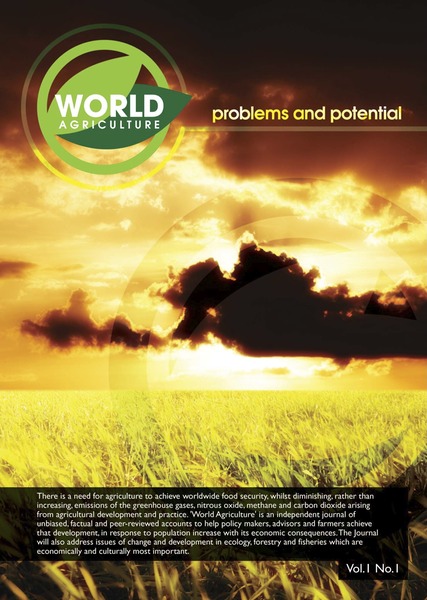
Global embassy representatives and international agricultural experts gathered in London today (1st April 2010) to mark the launch of a new independent journal on 'World Agriculture', www.world-agriculture.net, a peer-reviewed, completely independent, non-profit, journal, which will explore scientific, economic and social evidence concerning agriculture and its interaction with forestry, climate change, population growth, migration, disease and ecology.
Member of the Editorial Board, Professor Sir John Marsh outlined: "It is the lesson of recent experience that the major issues confronting humanity need an approach which is both world wide and multidisciplinary. For too long we enjoyed the comfort of our own silos paying insufficient attention to policy issues affecting other communities and scientific progress in fields beyond our own. By providing a peer-reviewed forum in which these issues are brought together, World Agriculture will help to ensure a more balanced and realistic approach to the pressing issues of food supply, environmental impacts and climate change [and will] fill a unique role amongst independent, peer-review journals, namely the analysis and assessment of scientific and economic information for decision-makers' for example farmers, advisors, industrial leaders and policy makers - particularly those in developing countries."
Former NRI Advisory Group member Dr Christie Peacock, a Tropical Agriculturalist and Chief Executive of FARM-Africa welcomed the launch of World Africa by saying "it is a timely publication and I have every confidence that this independent journal will be a source of scientifically sound information, sensitive to current evidence on important agricultural issues. World Agriculture will be able to play a role in guiding the actions of policy-makers and practitioners alike."
Some of the key issues it is hoped the publication will address have been identified as:
- How should agricultural productivity of developing countries best be helped when many are likely to be affected by climate change to a much greater extent than is the productivity of temperate regions?
- World agricultural output has increased by approximately 30% during the past 60 years with a massive increase in the use of fossil fuels. With an expected increase in world population to 9.1 billion over the next few decades, how can the necessary increase in agricultural production be achieved without increasing fossil fuel use, whilst maintaining forests and an adequate natural ecological balance?
- What are appropriate ways for agro-forestry to improve the world's carbon balance without affecting adequate food production to meet this increasing population?
- What are the advantages of GM foods and those of 'organic foods'?
The journal will be distributed from the World Bank's 15 centres around the world, it will also be available through other outlets.

